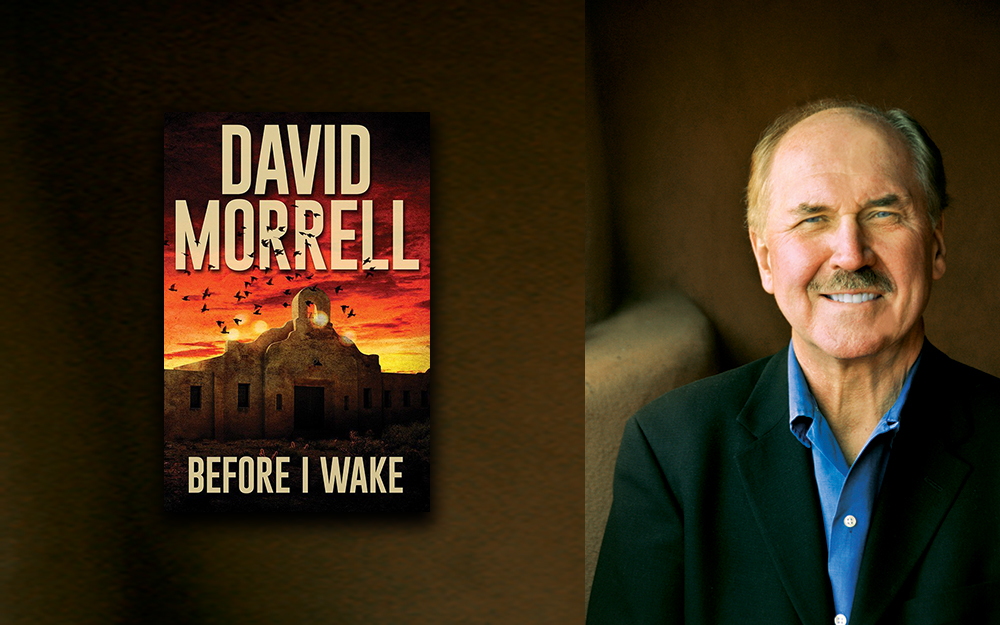
By Heidi Simmons
—–
Before I Wake
by David Morrell – Stories
—–
New York Times Bestselling author David Morrell delivers a new collection of short stories with a personal touch. Before I Wake (Subterranean Press, 376 pages) dwells in the thin places and packs a provocative personal punch.
Best known for his Vietnam veteran novel First Blood, Morrell is a master storyteller having published 28 novels, nonfiction books, essays and graphic novels. This is his third collection of stories.
There are fourteen tales in Before I Wake and each begins with a personal message from the author about its origin and theme.
“Time Was” finds a father eager to get back home from a road trip in time for his daughters birthday, but when he goes off road to avoid miles of backed-up traffic, he finds himself in an unfamiliar town one hundred and fifty years in the past.
“The Companions,” a true story according to Morrell, is about a man and his wife who head to the opera on a night during inclement weather. Passing a terrible accident on their way, they still make it on time for the pre-dinner and show.
The couple meet an elderly man and his younger companion, who dine with them, sit in the same row in the theater, and even park next to them in the lot. Coincidence? Over the next decade, the couple encounter the men again, but they can never be too sure. The strange thing is every time they see the men there is a deadly accident.
“My Name is Legion” is about a friendship that ends when the French Foreign Legionnaires must fight against each other.
“The Interrogator” is about a CIA agent trained in neuro-linguistic programming who must get a suspect to confesses his plans for a terrorist attack as quickly as possible. Applying the tricks of his NLP trade, he gets the confession, but it has taken four days while other interrogators got information in mere hours by using water-boarding. Which information technique is more reliable and who is telling the truth?
“The Spiritualist” puts Sir Arthur Conan Doyle in the room with his creation Sherlock Holmes for a heated conversation and debate regarding the truth about life after death.
“They” makes the little house on the prairie a horror story. A family trying to make a good life on the Plains cannot compete with the natural world. Only a young girl survives, but how long can she last alone on the dangerous frontier.
Other stories include characters from Morrell’s De Quincey and Abelard series.
Morrell incorporates his favorite authors and explores big questions about those whom he admires. In “The Architecture of Snow,” Morrell’s character meets a reclusive author who is similar to J.D. Salinger.
What makes these stories even more compelling is that Morrell’s personal prefaces add significantly to their power and relevance, which creates a kinship with the reader and provides insight into the author’s thoughts and creative process.
This is a wonderful addition as it takes out the guess work for readers as they try to understand the story’s origin, how much is real, and how much is fiction. Best of all the reader gets to know Morrell on another, more personal level.
Morrell shares the difficult loss of his 15-year-old son to cancer and it’s impact on his work and life. Years later, his granddaughter also dies from the same rare childhood cancer.
It is a great pleasure to read Morrell’s well-told stories. He is straightforward and allows for a beginning, middle and satisfying end. I also liked that Morrell reflects on the changing nature of the publishing world within some of his stories. Since being a successful author for so many years, these intermitted revelations are fascinating.
Each story asks a question and presents ideas about the credibility of the characters, the uncertainty of consensus reality, and the assurance of death.










































